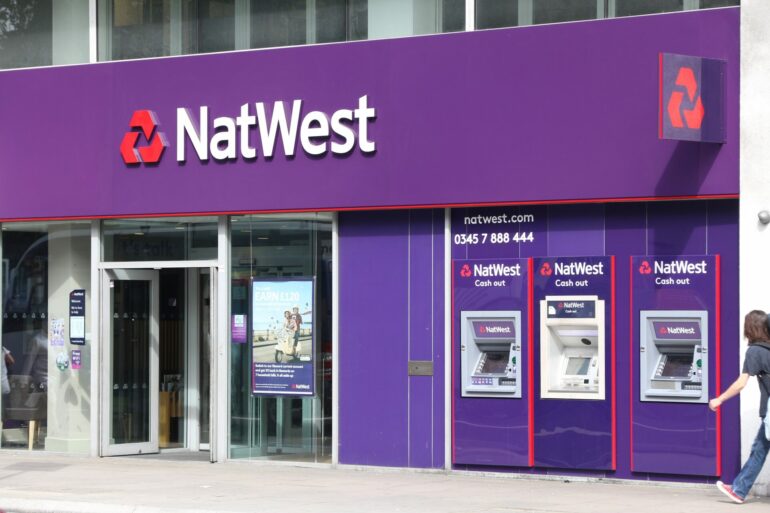NatWest has recorded an operating profit of £1.3bn in the first quarter (Q1) of 2024 with a return on tangible equity (RoTE) of 14.2%.
According to the bank’s latest results, net lending increased in the quarter, as growth in was partially offset by higher mortgage redemptions.
NatWest’s total income, excluding notable items, was at £3.4bn, a reduction of £28m, or 0.8%, when compared with Q4 2023.
The bank also recorded a net impairment charge of £93m, substantially lower than the expected figure of £186m.
Net loans to customers increased by £1.4bn in the quarter to £357.0bn, primarily reflecting a £3.4bn increase in Commercial and Institutional partially offset by £1.7 billion reduction in retail banking due to higher mortgage redemptions.
Total gross new mortgage lending was £5.2bn in the quarter, compared with £9.9bn in Q1 2023 and £5.6bn in Q4 2023.
Paul Thwaite, chief executive, said: “NatWest Group has delivered a strong set of results for the first quarter – with an operating profit of £1.3bn – as we remain focused on the priorities we set out in February, which will help us shape the future of this bank.
“Our performance is grounded in the vital role we play in the economy and in the lives of our 19 million customers.
“Though macro-uncertainty continues, customer confidence and activity is improving, with both lending and deposits up in the quarter and impairments remaining low, reflecting our well-diversified business.
“We are ambitious for this bank, and by succeeding for our customers, we will succeed for our shareholders. Our first priority is delivering disciplined growth across our three businesses by serving our customers well. At the same time, we are becoming simpler, more productive and easier to deal with.
“As a result, we aim to generate returns that allow us to support our customers, invest in our business and deliver attractive distributions to shareholders.
“We are also pleased with the recent momentum in the reduction of HM Treasury’s stake in the bank. Returning NatWest Group to private ownership is a shared ambition and we believe it is in the best interests of both the bank and all our shareholders.”
Reaction:
Matt Britzman, equity analyst, Hargreaves Lansdown:
“NatWest is best of the bunch. Lloyds and Barclays led the way this week and NatWest certainly hasn’t disappointed with first-quarter results very nearly a clean sweep vs expectations. Impairments came in lower than expected, net interest margin ticked higher from the previous quarter and both customer loans and deposit levels grew.
“The UK banking sector looks strong. NatWest has followed its peers in calling out a slowing of some of the headwinds that have been impacting performance in recent quarters.
“Customers shifting to higher-rate accounts is slowing as expected, impairment rates on loans have stabilised at low levels, the economic outlook has improved, and balance sheets remain strong.
“Of the UK-listed banks, NatWest looks best placed to benefit from a higher rate environment as its structural hedge comes off some of the lowest rates in the sector.
“Think of this like a bond portfolio that’s rolling on to higher yields over the next few years.
“Management has kept guidance largely in place, which still looks on the conservative side given it factors in several rate cuts this year that really don’t look likely to come.
“That leaves NatWest not only with the potential for operational strength but also paves the way for positive income surprises later in the year.”
Richard Hunter, head of markets at interactive investor:
“NatWest has been able to flex its financial muscles once more, outpacing expectations and maintaining its guidance for the year.
“After a particularly strong start to the corresponding period last year, it is unsurprising that the headline numbers are lighter this time around.
“Even so, both of the key measures are ahead of forecasts. Total income of £3.47bn was down by 10% but ahead of the expected £3.43bn, while a pre-tax profit decline of 27% to £1.33bn beat estimates of £1.26bn.
“Income has been affected on a number of fronts, such as lending margin pressure and lower deposit balances as customers search for higher rates of return after years in the doldrums.
“Nonetheless, the situation appears to be stabilising and the group has pointed to the fact that both net lending and customer deposits rose in the quarter. Of course, it remains to be seen whether this trend becomes established.”




